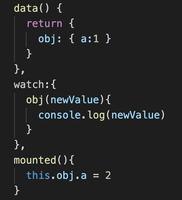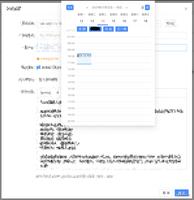React.js无状态与有状态
了解无状态和有状态反应组件之间的差异
在状态管理中,我们了解了如何在发生更改时处理状态以做出反应。
无状态组件是简单的功能组件,没有局部状态,但请记住,在功能组件中添加状态行为也有反应。
有状态组件可以包含状态对象和事件处理功能,以及用户操作。
无状态组件本质上是纯净的,它执行非常特定的任务。
import React from 'react';const player = (props) => {
return (
<div>
<p>I'm a Player: My name {props.name} and my score is
{props.score}</p>
{props.children}
</div>
);
}
export default player;
上面是一个这样的功能组件,它仅显示从另一个组件传递的props属性。我们可以从位于类组件(容器)中的功能组件调用事件处理函数。
容器意味着包含一些本地状态或事件或用户操作。
我们可以在功能组件中添加一些逻辑动态代码,但不能修改状态或应用程序数据。
功能组件的通过方法引用
在动态输出文章中,我们已经看到了如何将属性从父组件传递到子功能组件。与此类似,我们可以添加一个方法引用。
import React, {Component} from 'react';import './App.css';
import Player from './Player'
class App extends Component {
state = {
players:[
{name: 'Smith', score:100 },
{name: 'David', score:90},
{name: 'Phil', score:80}
],
otherObject:'Test'
}
switchPlayerHandler = () =>{
this.setState({players:[
{name: 'Smith', score:200},
{name: 'David', score:290},
{name: 'Phil', score:380}]});
}
render(){
return (
<div className="App">
<button onClick={this.switchPlayerHandler}>
Switch Player
</button>
<Player name={this.state.players[0].name}
score={this.state.players[0].score}
click={this.switchPlayerHandler}/>
<Player name={this.state.players[1].name}
score={this.state.players[1].score}
click={this.switchPlayerHandler}>
Plays for Australia
</Player>
<Player name={this.state.players[2].name}
score={this.state.players[2].score}
click={this.switchPlayerHandler}/>
</div>
);
}
}
export default App;
观察我们传递了一个方法ref
<Player name={this.state.players[2].name} score={this.state.players[2].score}
click={this.switchPlayerHandler}/>
我们可以在类似于onClick函数调用的功能组件上使用它
import React from 'react';const player = (props) => {
return (
<div>
<p onClick={props.click}>I'm a Player: My name {props.name} and my score is {props.score} </p>
{props.children}
</div>
);
}
export default player;
对功能部件中的方法引用进行参数
<button onClick={this.switchPlayerHandler.bind(this,'John','Test')}> Switch Player
</button>
使用上述语法,我们可以将其作为类绑定的第一个参数传递,而其余参数则是我们要传递的值。
switchPlayerHandler = (newName,secondName) =>{ this.setState({players:[
{name: newName, score:200},
{name: secondName, score:290},
{name: 'Phil', score:380}
]});
}
传递的值可以在上面所示的函数中使用。
还有另一种方法可以传递方法参数。
onClick={ () => this.switchPlayerHandler('Michel','Stark') }上面是一个匿名函数调用。它的工作原理相同。与第一种方法相比,该方法效率不高,因为React使用第二个匿名函数调用进行了一些渲染。这取决于我们是否不考虑性能下降。
状态或应用程序数据修改应在几个选定的组件中进行以避免复杂性。
以上是 React.js无状态与有状态 的全部内容, 来源链接: utcz.com/z/338598.html








